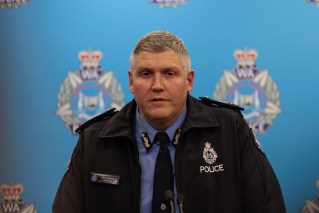Australians get off the smokes, but are increasingly trying party drugs

Australians are increasingly butting out the cigarettes and putting down the bottle but more are turning to party drugs.
There was a fall in recreational use of painkillers and opioids, but party drugs, including cocaine and MDMA, have grown increasingly popular.
Meanwhile, the number of Australian smokers has fallen to just 11 per cent, the National Drug Strategy Household Survey has found.
“Smoking rates have more than halved since 1991 when almost one quarter (24 per cent) of Australians were daily smokers,” Australian Institute of Health and Welfare spokesperson Dr Gabrielle Phillips said.
“The daily smoking rate was 12.2 per cent in 2016 and 11 per cent in 2019.
“More smokers said the cost of smoking was motivating them to quit or cut back – 58 per cent in 2019, compared with 52 per cent in 2016.”
While conventional smoking had decreased, the use of e-cigarettes is on the upswing according to the survey of more than 22,000 people.
Senior research fellow at the University of Melbourne Michelle Jongenelis said the increase was ‘‘worrying’’.
“Increase among non-smokers aged 18 to 24 years has quadrupled in just six years, from five per cent in 2013 to 20 per cent in 2019,” Dr Jongenelis said.
“Furthermore, 65 per cent of adolescents and 39 per cent of young adults report using e-cigarettes despite having never smoked.
“These concerning proportions are likely being driven by the vaping industry’s narrative that e-cigarettes are ‘harmless’.”
While Australians are drinking less, most still love a drop, with about a third reporting they had consumed alcohol in the previous 12 months.
The proportion drinking at risky levels on a single occasion at least monthly (25 per cent) or at levels that put them at risk of harm over their lifetime (16.8 per cent) has been stable over the past three years.
“There was also a rise in the number of people cutting back on alcohol, with 31 per cent of people saying they had reduced the number of alcoholic drinks they consumed at any one time, up from 28 per cent in 2016,” Dr Phillips said.
In May, the AIHW collaborated with the Australian National University to study the effect the pandemic was having on our alcohol habits.
The study found 27 per cent of Australians who consume alcohol reported drinking less since the spread of COVID-19, while 20 per cent reported drinking more.
While we’re taking fewer prescription medications, we’re also consuming more illicit drugs – with just under half of us trying something illegal.
The reclassification of medications containing codeine in 2018 to make them available only by prescription appears to be largely responsible for a decline in the non-medical use of pharmaceuticals.

Smoking rates have fallen to just 11 per cent. Photo: AAP
“The proportion of people using codeine for non-medical purposes has halved since 2016, from 3.0 per cent to 1.5 per cent in 2019,” Dr Phillips said.
“Overall, the use of pharmaceuticals for non-medical purposes in the previous 12 months dropped from 4.8 per cent to 4.2 per cent.
“In 2019, more than 43 per cent, or nine million Australians aged 14 and over, had illicitly used a drug at some point in their lifetime and 3.4 million (or 16.4 per cent) had used one in the past 12 months.”
If we break our population down by age, today’s 14 to 29-year-olds are less likely to smoke, drink alcohol or consume illicit drugs than previous generations.
In 2019, two-thirds of 14 to 17-year-olds had never consumed a full standard drink – more than double the proportion in 2001.
“In 2001, 38 per cent of 14 to 19-year-olds had used an illicit drug at some point in their lives, but by 2019, this was 22 per cent,” Dr Phillips said.
“People aged in their 40s were the most likely to have used an illicit drug in their lifetime (55 per cent in 2019).”
Associate professor Nicole Lee at the National Drug Research Institute, Curtin University said the fact Australians were taking more drugs showed we need to focus on harm-minimisation strategies.
“There has never been such a thing as a drug-free society,” she said.
“We need to face the fact that drugs are not going away and work out how to make them safer.
“It really reinforces why we need to introduce harm-reduction measures like drug checking at festivals.”









